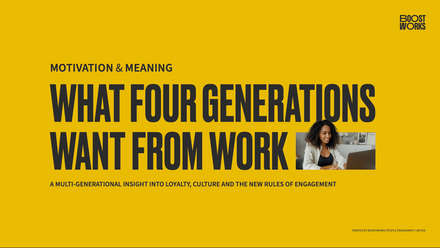Behavioural economics vs incentivisation: A new approach to financial wellbeing

Having an appreciation of behavioural economics means we can better understand the way employees approach financial decisions. Therefore we can create products and services, and implement interventions or ‘nudges’, to help drive positive behaviour that improves employees’ financial wellbeing.
Using behavioural economics in a financial wellbeing strategy
A behavioural approach to financial wellbeing can be very effective if well applied. An American company, HelloWallet, have done a tremendous amount of work in driving positive outcomes. Their success comes from integrating behavioural science at the very core of their product development and design process, whilst making sure to continually test their proposition to find further marginal gains.
By integrating behavioural economics from the beginning, we can effectively create products and services that track and reflect the decision-making behaviours of employees and better suit their needs.
Employers’ understanding of behavioural economics in financial wellbeing strategies
Although small, there is already a growing awareness and appreciation of behavioural economics among the HR community, thanks in part to the rise of popular science books like Thinking, Fast and Slow, Freakonomics and Nudge.
If we look at pension auto-enrolment as an example, we can all recognise the positive effects of changing the default from opted-out to opted-in. The automatic enrolment pension scheme is successfully reversing the long-term decline in the number of people saving into workplace pensions in the UK. The opt-out rate is only around 8–15 per cent currently. A simple change in how options are presented to employees can have an incredible impact on employee behaviour.
That being said, the science behind this relatively new field is no doubt still a mystery to most. Arguably, the understanding of how it works and the value that it offers is there, but how it can be practically applied might not be.
Implementing rewards or incentives to influence employees to change their financial behaviours
In reality, incentives are tricky and short lived. While intuitively you might expect rewards and incentives to encourage people to save more, they are often best suited to one-time actions (i.e. instant gratification), like opening a saving account.
When employees are incentivised to do something, they are likely to continue doing so up until the time the incentive is fulfilled. When it comes to effecting long-term behavioural change, incentivisation can become expensive and excessive.
Default pension contributions need to become smarter in tracking changes to employees’ financial situations. A promising example is the Save More Tomorrow scheme, originating in America, where employees’ savings contribution is automatically increased in-line with any pay increase.
There is definitely exciting potential for how we can use behavioural economics to influence our financial wellbeing strategies and better understand our employees’ relationship with their money.
A good starting place is to broaden our understanding of behavioural economics. Once we start from there, we can work to create products and services that can truly improve and understand the financial wellbeing of UK employees.
This article was provided by Neyber.
Neyber is sponsoring REBA's Employee Wellbeing Congress 2018, which is being held on 5 July in London.






